'I remember thinking that I was going to die'
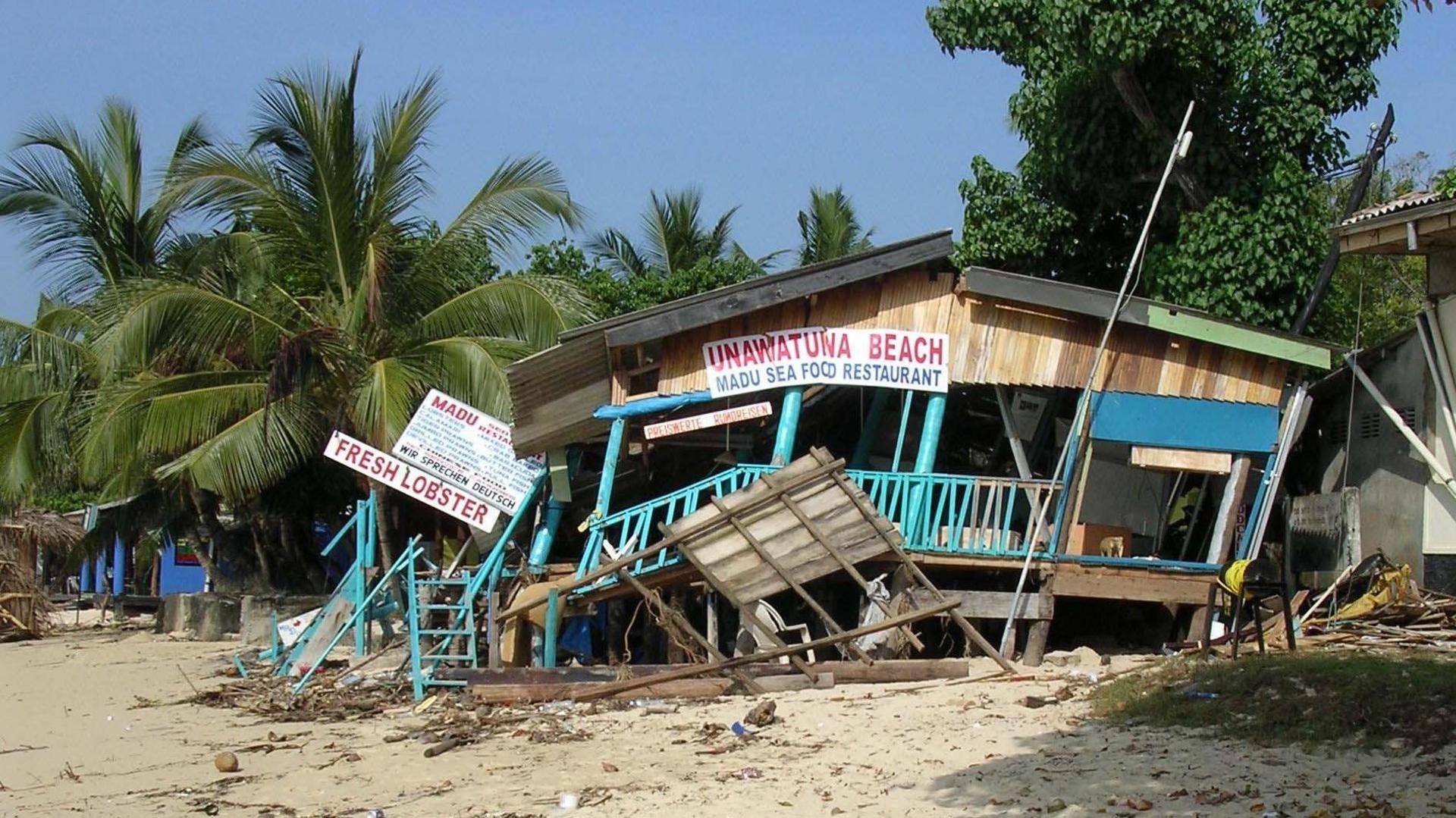
The Tsunami hit Unawatuna beach just before 09:30 local time on Boxing Day 2004
- Published
Two Channel Island residents have shared their memories of the Boxing Day Indian Ocean earthquake and tsunami on the 20th anniversary of the disaster.
In 2004, the deadliest tsunami in recorded history struck in the Indian Ocean, killing more than 225,000 people and displacing another 1.7 million.
Guernsey's Peter Roffey was on a Sri Lankan beach when the first wave struck, while Jersey's Grant Feltham travelled to the country after the disaster to help rebuild houses and roads.
Mr Roffey said: "I remember thinking that I was going to die."
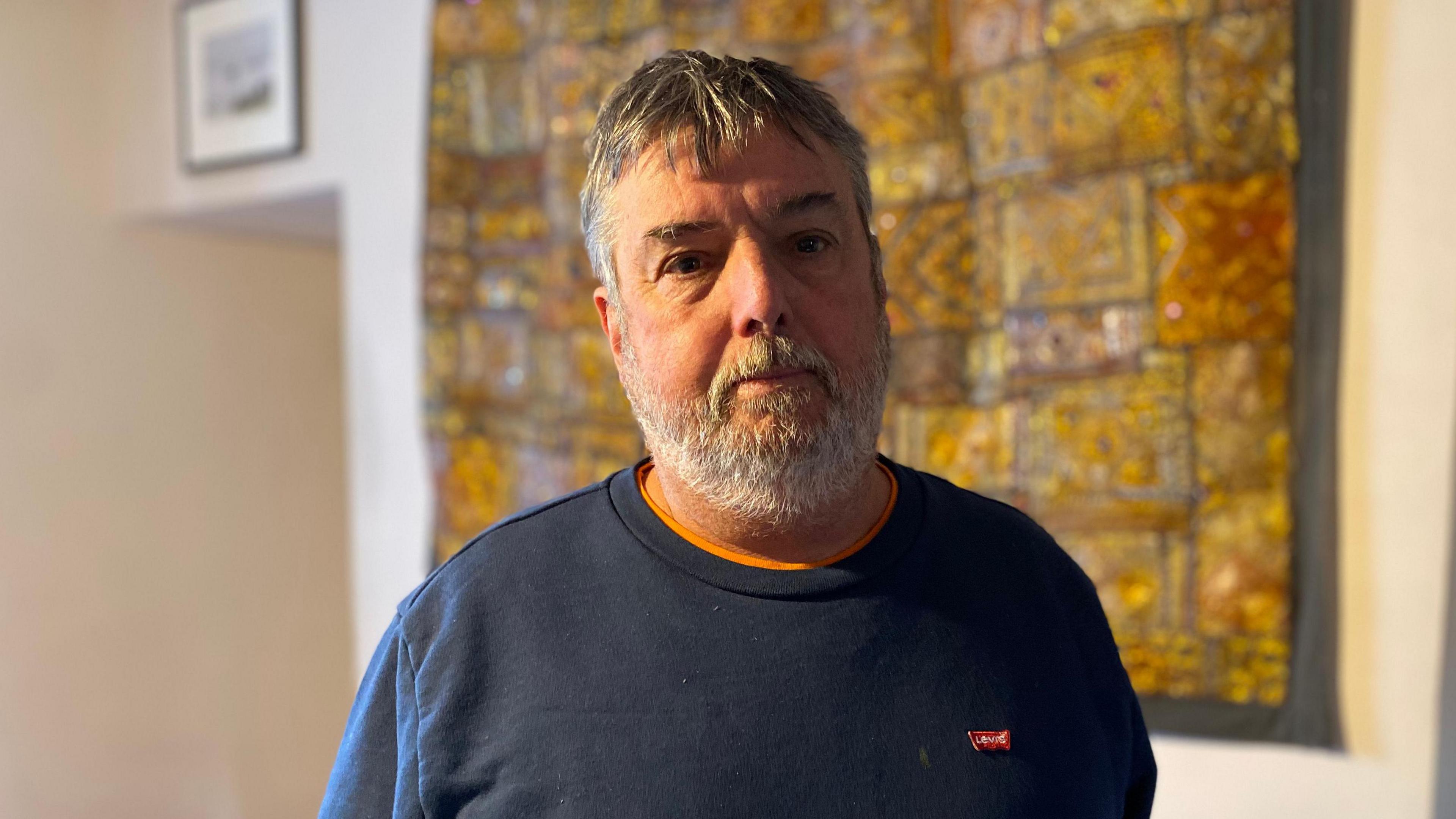
Peter Roffey was on holiday in Sri Lanka with his partner and step-daughter
Warning: Contains distressing content
Mr Roffey was eating breakfast with his partner Jean Pritchard on Unawatuna beach on the south coast of Sri Lanka when the tsunami hit.
"I got washed away through the jungle, it was like being in a washing machine," he said.
"All sorts of things that shouldn't float were floating along with you.
"I was being sucked down under the water all the time and wasn't able to get back to the surface.
"I remember thinking: 'This is it.' This wasn't in my script, I didn't expect to die at age 46, as I was then.
'Hole in my shoulder'
"I was totally convinced that my last moment had come."
He added: "There were no emotions. The shock was just so strong that you're not thinking anything other than trying somehow to find some way to survive."
He managed to drag himself on to a balcony once the wave had stopped moving.
"Only then was it that I looked down and saw there was a huge hole in my shoulder," he said.
"I should have been squealing in pain and, although it was painful, I think the shock just blocked it out."
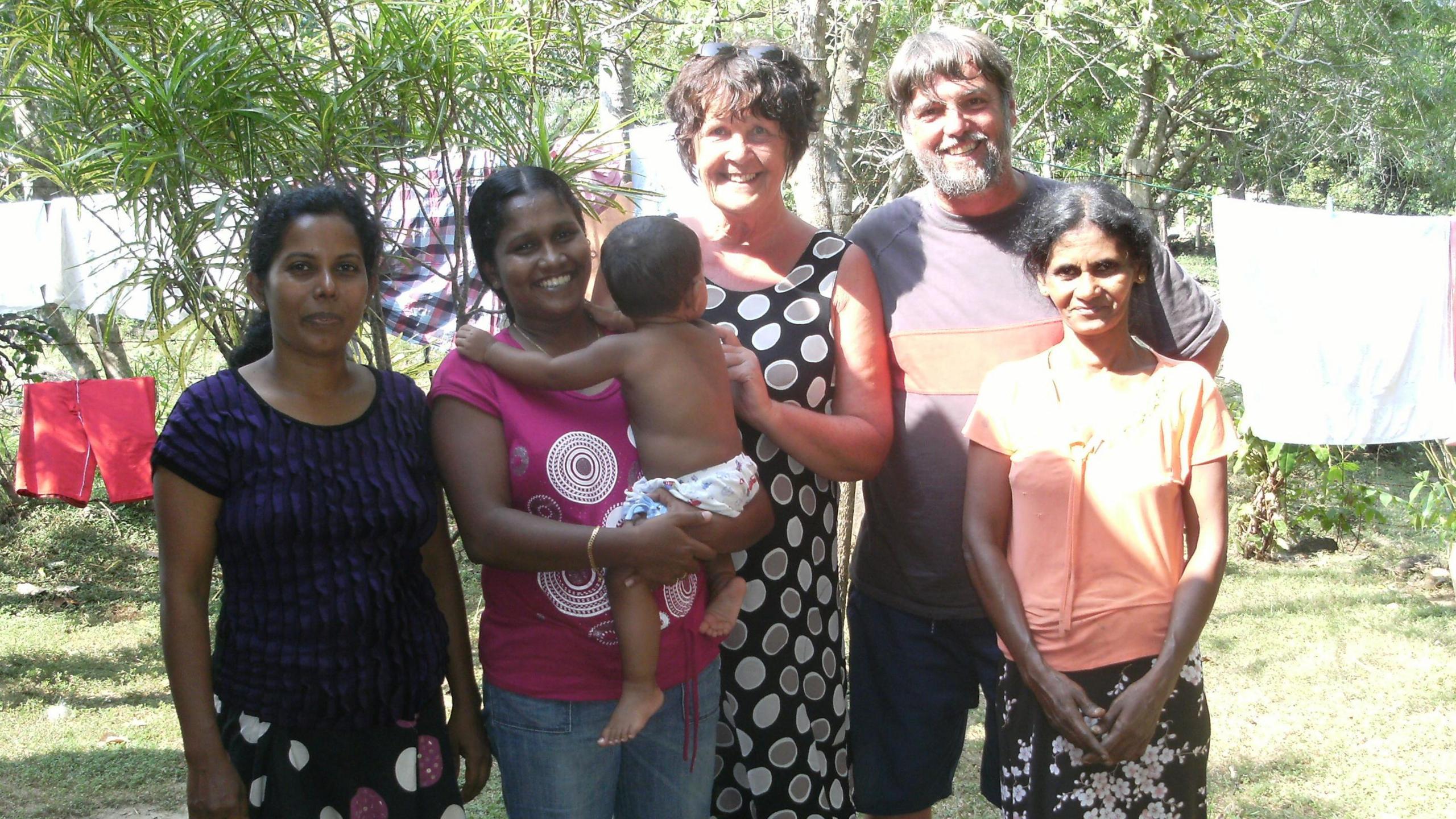
Peter Roffey has returned to Unawatuna on several occasions
Mr Roffey was eventually taken to a guest house where he was assessed as being in a serious condition by local medics.
"There was no way you could get out. All the roads were blocked, there was no electricity as it had all been destroyed, and there was no hygiene as all the sewers had burst open," he said.
"It was a horrid night, lying there all night. It seemed to go on forever."
The next morning the Sri Lankan air force took Mr Roffey along with other seriously injured people to the nearest hospital.
"It was totally overwhelmed," he said.
"You went through the front door and there were hundreds and hundreds of corpses just in the reception area.
"[That was] Partly because the mortuary had been overwhelmed, but also many people from the local town looking for missing people would come in and try and identify them."
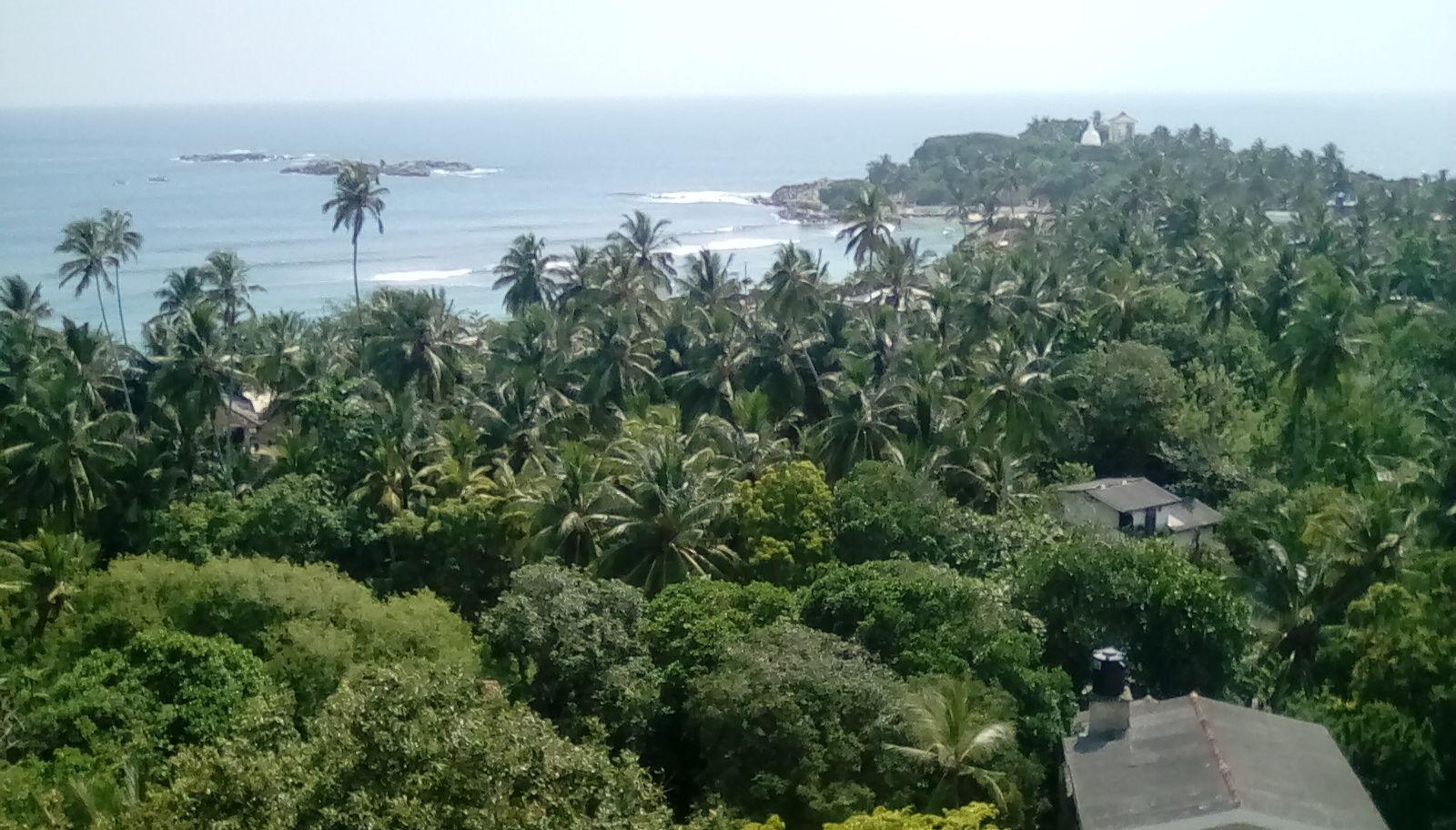
Mr Roffey was swept into the jungle of Unawatuna by the wave
Mr Roffey has returned to Sri Lanka several times since 2004 and is once again in the country to mark the 20th anniversary.
He said: "I'm going back mainly to be with the locals that were so incredibly supportive at the time.
"Some of the pain has eased, some of it just bubbles up in strange ways.
"I do still suffer from night terrors, I will sometimes shout and scream."
He said the rawness of the events no longer worried him on a day-to-day basis.
"I do get far more worried about nature when its all-powerful," he said.
"That thing of being powerless in the face of nature still makes me feel uneasy.
"It's never going to go away, it's going to live with me forever. But it's not so dominant in my mind as it once was."
Mr Roffey's partner and her daughter both survived the disaster.
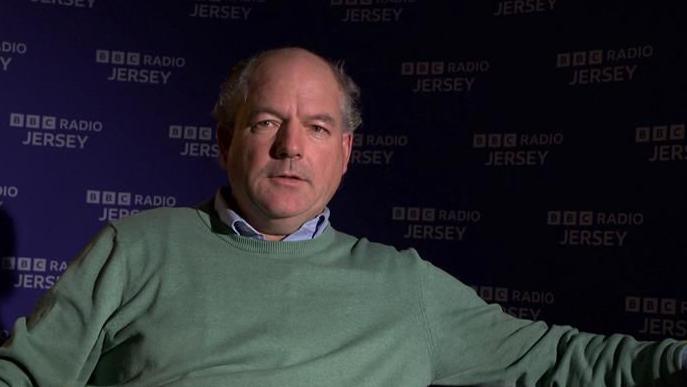
Grant Feltham spent 14 months helping the recovery teams in Sri Lanka
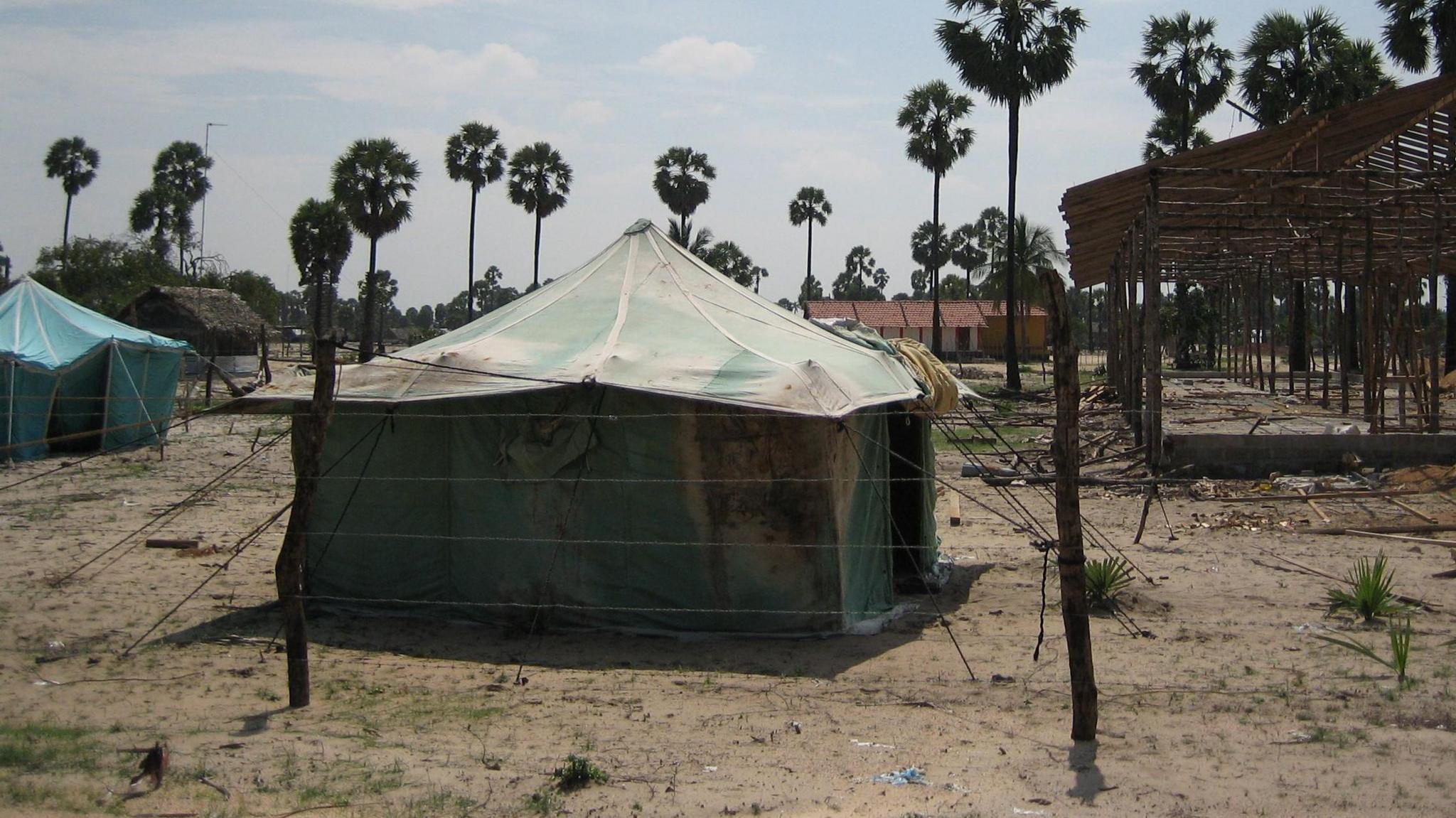
People were forced to live in tents following the destruction of the tsunami
Grant Feltham was working as a property developer with his father at the time of the disaster and had just qualified as a member of the Jersey Field Squadron.
"We all just said why don't I go out there and try and get involved and assist with the rebuilding," he said.
Mr Feltham arrived in Sri Lanka several weeks after the disaster and was given the use of a four-wheel-drive vehicle and a translator.
He had a team of locals who worked with various government and humanitarian groups to rebuild houses, roads and other buildings.
Part of his role was to rebuild concrete wells which had been destroyed by the tsunami.
"I was in a well with a local and we were clearing out the bottom area and came across the jaw bone of a skull. That was a bit of a wake up call," he said.
"We placed it with the local church and closed that well off.
"It's the environment and the nature of what's going on around you, you adapt and just get on with it."
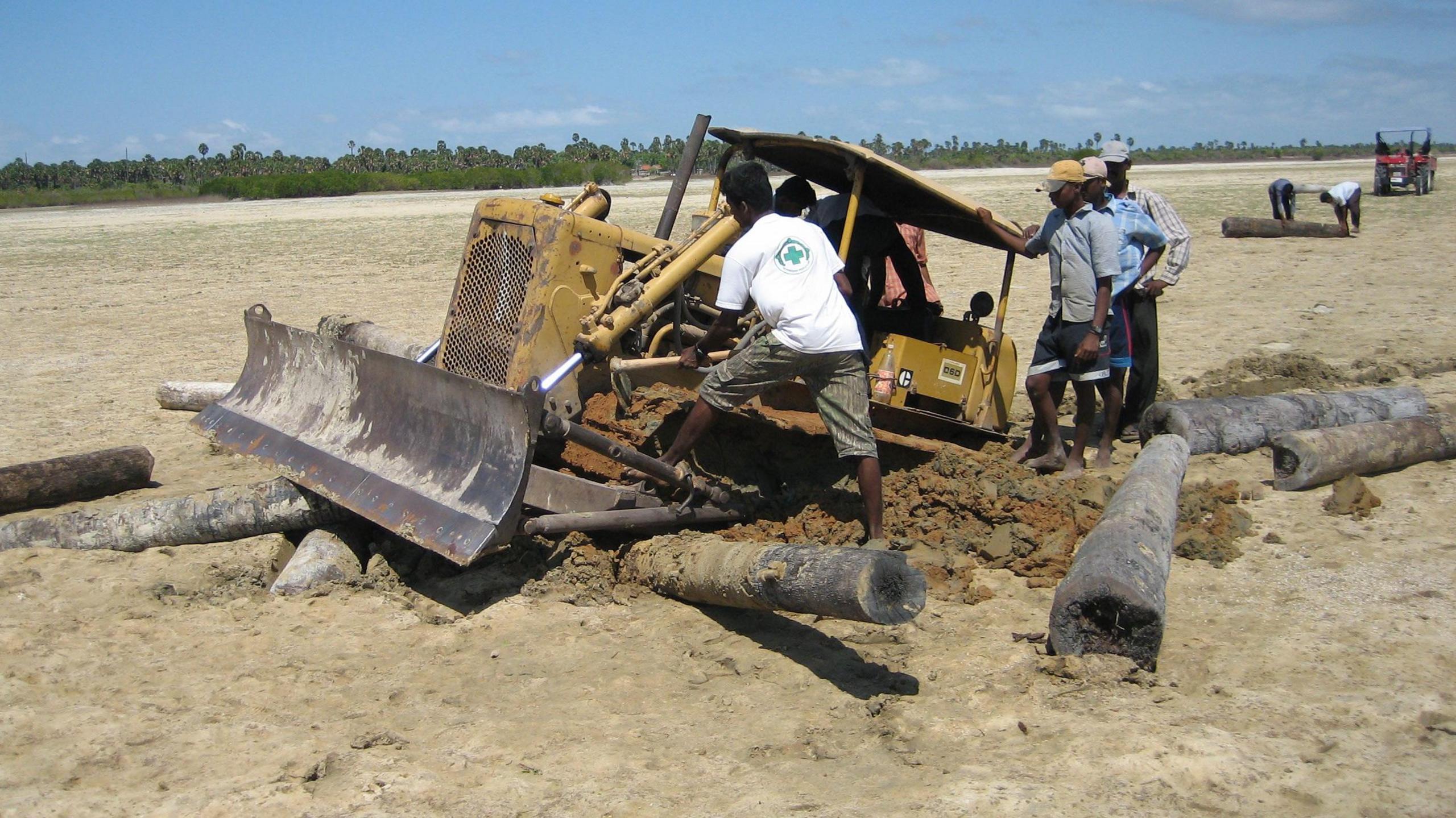
Grant Feltham worked with a team of local people and agencies to rebuild houses, roads and other buildings
Mr Feltham spent 14 months in Sri Lanka and said he had both good and bad memories.
He said: "I arrived after the loss of life had been cleared up, I was there more to see the destruction of what had happened.
"I was responsible with my team for rebuilding 23km [14 miles] of road that had been washed away.
"I was involved with rebuilding four villages, with 1,200 houses.
"Some didn't have all their family around them, so we offered security in what we could do, to rebuild villages fast."
He added: "I am absolutely proud. I achieved a lot and it wasn't just me, it was the team around me.
"It was thoroughly rewarding."
Follow BBC Guernsey on X, external and Facebook, external. Follow BBC Jersey on X, external and Facebook, external. Send your story ideas to channel.islands@bbc.co.uk, external.
- Published23 December 2024
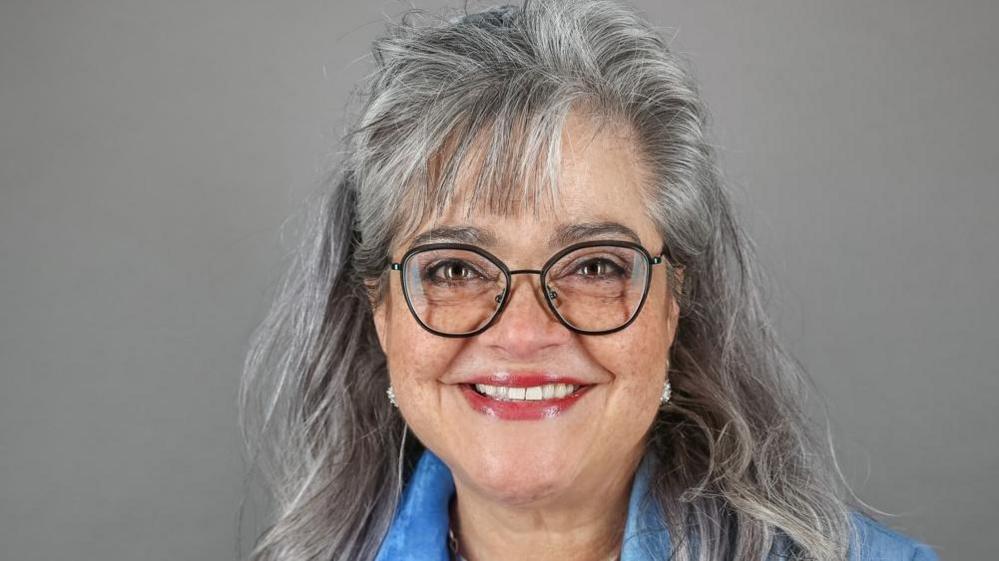
- Published23 December 2014